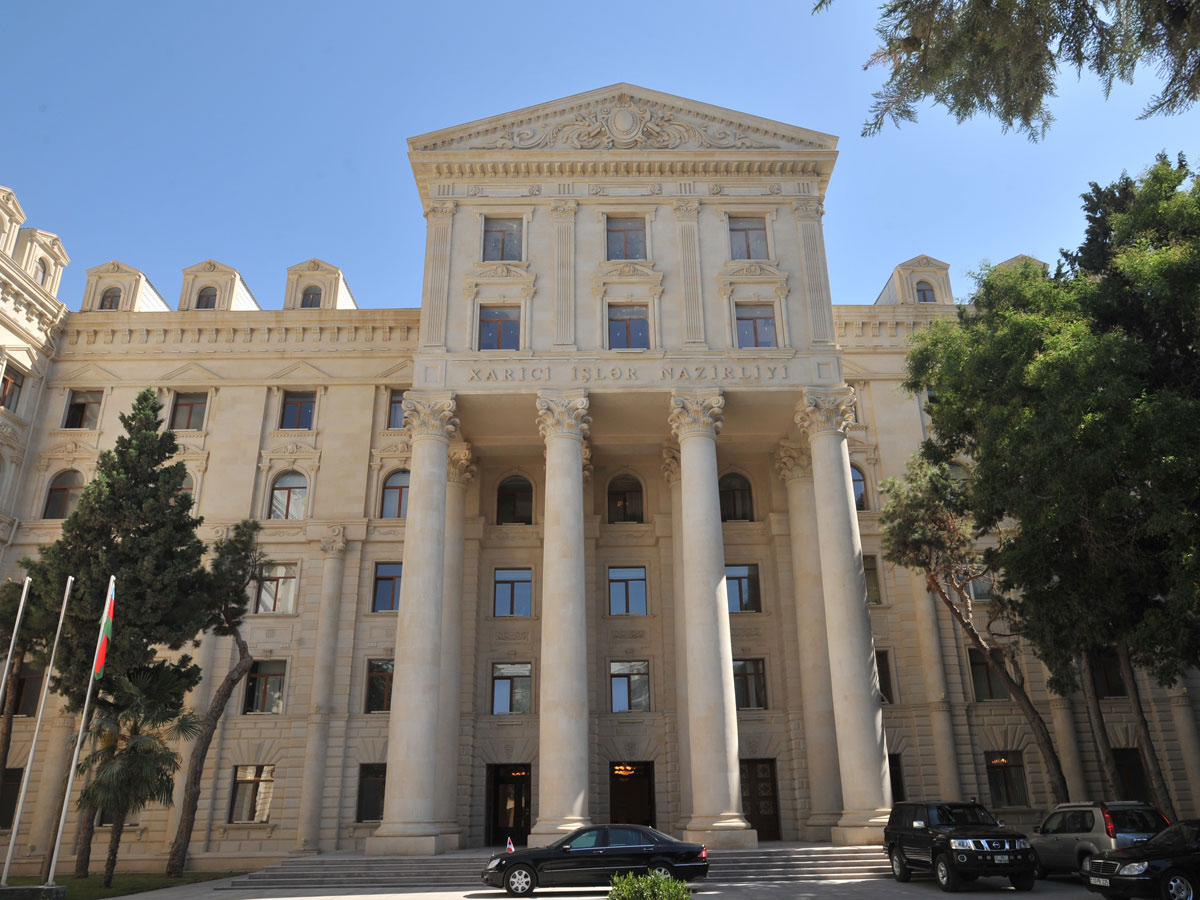Baku, Azerbaijan, Aug. 20
Trend:
There are political, legal, historical and religious frauds in Anton Yevstratov's article titled "The belfries and minarets of Karabakh", which is obviously written by the author on an order, said Hikmet Hajiyev, the head of the press service of Azerbaijan's Foreign Ministry on August 20.
He was commenting on the article published in the Nezavisimaya Gazeta on August 19.
Hajiyev said that an illegal regime, created by Armenia, exists in Azerbaijani territories occupied by Armenia, which is a result of occupation and aggression.
"The author, who writes that 99.9 percent of the population in the occupied territories are Armenians, in fact this once again confirms that the local Azerbaijani population was subjected to ethnic cleansing," said Hajiyev.
"I'd like to remind the author that before the conflict of 1988, some 74 percent of the Nagorno-Karabakh autonomous region's population was Armenians, 24 percent - Azerbaijanis, 2 percent - Russians, and other peoples. Now it is a mono-ethnic composition comprised of Armenians," said Hajiyev.
He noted that Armenians are an alien people in the South Caucasus and that it is absurd to speak of a "historical" role of the Armenian Church in the territory of Karabakh and present-day Armenia.
"Distorting the name of the Ganjasar monastery, the author doesn't take in to account one thing," said Hajiyev, asking if the Ganjasar monastery was created as a purely "Armenian" monastery, then why Prince Hasan Jalal, who had this temple built, ordered to write on it "the Albanian capital's temple built for my Albanian people."
Similarly, the Christian population of the mountainous part of Karabakh called themselves Albanians in a letter to the Russian Tsar Peter I, said the head of the press service of the foreign ministry.
Hajiyev said that Armenian Church, which fought with the Albanian Church for centuries, sought to subdue and then eliminate it. "The Albanian letters were destroyed in 1836, when by the decision of the Russian Synod, the Albanian church was placed under the authority of the Armenian Church," said Hajiyev.
It is appropriate to recall that a decree on the confiscation of property of the Armenian Church for the implementation of terror policy against Tsarist Russia was issued in 1903, he said.
Hajiyev also mentioned the author's distortion of information about the material and cultural heritage belonging to the Islamic religion of the Azerbaijani people on the occupied territories.
Demirbulag mosque related to the Azerbaijani people was completely destroyed on the territory of Armenia, Hajiyev said. He noted the facts of vandalism and desecration of the Juma mosque located in the Agdam district, as well as Yukhari Gevharaga mosque in Shusha.
"As one can see from the article, the author illegally visited the occupied territories of Azerbaijan, violated the law of Azerbaijan "On State Border" and is involved in the ordered falsification of the history of Azerbaijan and supports the self-proclaimed regime," said Hajiyev. "After due investigation, the author's name will be included in a list of undesirable persons."
The conflict between the two South Caucasus countries began in 1988 when Armenia made territorial claims against Azerbaijan. As a result of the ensuing war, in 1992 Armenian armed forces occupied 20 percent of Azerbaijan, including the Nagorno-Karabakh region and seven surrounding districts.
The two countries signed a ceasefire agreement in 1994. The co-chairs of the OSCE Minsk Group, Russia, France and the US are currently holding peace negotiations. Armenia has not yet implemented the UN Security Council's four resolutions on the liberation of the Nagorno-Karabakh and the surrounding regions.
Edited by CN






